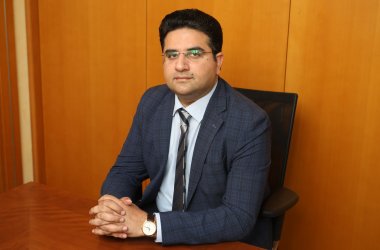
No surprises in the fact that the first half of 2009 has been among the most testing times for the industry. According to Forrester Research, which has forecast global IT spending to decline by nearly 11% in 2009 before vendors and end-user organisations begin to see some signs of recovery later this year and early next. Some of the leading systems integrators of the region seem to concur with that view and are hoping that things will turn out better towards the close of the year.
“Reality is that demand has slowed down even though it is very difficult to predict how long it will take to pick up again. Many analysts are predicting this to happen in 4Q09 or early 2010. We are rooting for them,” says Cesare Cardone, CEO – GBM.
He however adds, “GBM started feeling the slowdown only as recently as March- April, Nevertheless, we had a good May and we expect to close June on a positive note.”
It is a tough scenario for system integrators as they struggle to keep costs under control even as they face delays with payments coming in. Most of them are confronting the fact that 2009 is not about growth but is about staying on in business until the turnaround starts.
Nayagam Pillai, COO of Seven Seas Computers says, “Growth has been very minimal – We are trying to keep our heads above water – Challenges are mainly post order delivery and payment – No customers Purchase order is any longer sufficient to make you feel the sale is secured.”
Slowdown in some of the key sectors such as Real Estate was bound to have a spiralling effect. Moreover, customers are not really looking at technology investments for technology sake.
Venkat Raghavan , GM, Al-Futtaim Technologies says “The slowdown in the real estate/construction sector is bound to have an impact in the IT infrastructure deployment as well. However, there is a delay-effect which means the impact was not felt that strongly in the first six months. In other words, ICT infrastructure gets deployed towards the end of the project construction cycle and there was work to be done on those constructions completed before the recession took effect. But in the corporate sector the slowdown was marked; any enhancements, upgrades or new features are being cautiously approached.”
He adds, “There is no market for nice-to-have features. If there are substantial productivity gains or manpower reduction, then such solutions are being considered.”
Ripples of the global recession were finally felt in the region towards the beginning of the year. Finance along with Real estate were the two sectors that saw the greatest impact and it hurt also because they had been amongst the highest spenders in IT.
George Mourad, Sales Director, Emirates Computers says, “We experienced a rather shy growth rate in the first six months of 2009 mainly due the adverse effect of the global financial crisis, which has ultimately affected aggressive growth plans in the region. Dubai, in particular, has enjoyed a tremendous and rather impressive growth rate for the past few years mainly driven by the Financial and the Real-estate sectors through building state of the art infrastructure such as expanding and building new Airports, developing ambitious Real-estate projects such as Palm Jumeirah, and Dubai Mall to name just a few. The impact of the Global financial crisis has been particularly pronounced in these two market segments, which ultimately affected the growth of the IT industry that has essentially been driven by these immense projects.”
Is it going to get any better or worse in the next few months? The traditional slowdown in the summer months could make them feel the pinch even more.
Pillai adds, “The next quarter is going to be very challenging – Two months of summer coupled with Ramadan – July-August-September as a quarter could be a complete wash out. Few projects which got delayed in Q1-Q2 might see light of the day; overall it will be a very challenging quarter to look for gains.”
Mourad concurs. He says, “We expect the next quarter to be timid as well due to combined effect of the financial and seasonal factors (summer and Ramadan); however, it is great opportunity for organizations to line up their internal resources in order to be ready for capturing the next positive cycle. “
Raghavan believes that the slowdown in the construction sector in the last 9 months is likely to have a more pronounced impact on the ICT deployments in the coming quarters. “However, by focussing on specific territories and solution sets, the SIs have a chance to ward off the impact,” he adds.
Local branches of Multinational companies are among the strong customer segments for Seven Seas. But the scale of MNC expansions regionally has dropped considerably with far less new projects on the horizon.
Pillai says, “While we are seeing new companies still opening shop in UAE, the numbers have reduced drastically; the size of such projects is also very small, compared to average deals sizes which we used to execute before. People who had planned long time back are going forward with the plans, but in a very conservative form and scale.”
From the vendors, there has been so much buzz about virtualisation, storage consolidation etc. but what is the ground reality and is there demand for such projects?
Pillai contends, “As a company, we have not seen much happening in these. Although both customers and vendors are driving the market sentiments with this technology to be their saviour – we have yet to see any major customers implementing Virtualisation, storage consolidation in any major way – resulting in pure new projects on this technology.”
However, the SI seems to be focusing on strengthening offerings/expertise in Virtualisation technologies since that seems to the future.
Pillai says, “We have built up a pipeline of both Virtualisation and Storage consolidation, which seems to be the flavour of the day. Our focus has been also on services, both resource outsourcing and maintenance contracts to keep old hardware up and running beyond its life span.”
Al Futtaim believes there is an opportunity for consolidation as long as benefits are tangible and not protracted in realisation.
Raghavan says, “With our strengths in IP telephony, we will be focussing on Unified Communications where productivity gains are tangible. The advancements in UC such as video integration may attract customers more since it helps to cut down on travel costs.”
Emirates Computers is betting on all those technologies that promise consolidation to customers. After all, costs are top of the mind for every customer especially now.
Mourad says, “Market conditions, which is driven by reducing cost, increasing efficiency productivity, and sustaining & enhancing profitability, indicate that the current and subsequent cycles are/will be mainly based on the concept of “CONSOLIDATION”. All the IT technologies that contribute to this concept could realize a positive return; certainly virtualization and storage consolidations are some of them. Managed services based solutions i.e. “Remote Monitoring” could be another.”
HealthCare, Government in addition to Managed services are areas where Emirates Computers expects to see momentum as far as interest is concerned. These are the areas where the SI is ramping up expertise.
Al Futtaim’s Raghavan is betting on health and education as among the least likely to be impacted. In addition, he says that focusing on territories that are spending heavily on projects could be a wise proposition.
Raghavan comments, “The health and education sectors are unlikely to be affected drastically by the downturn. The Abu Dhabi and Qatar markets are attracting a lot of attention with a number of projects going forward.”
The trick is also to keep costs and overheads under control. SIs are realising that it is going to be a long haul.
For instance, Seven Seas had plans to move to new facilities. But that relocation has been deferred and they are staying put in their current location.
Pillai says, “It has been put on hold – we have re-negotiated our contract with JAFZA and our existing landlord – we have got an extension from both to sail through the current economic situation. Though on one hand it is cheaper to own your own premise – the trade-off is not really worth at the moment.”
The scenario in the final analysis continues to pose challenges. The next one-two quarters will test the survival skills of systems integrators in the region as they fine-tune their expertise in new technologies and seek new customer orders as they come in.
With key sectors struggling, systems integrators are coming to terms with a slowdown in orders coming through as well as protracted delays with running projects





